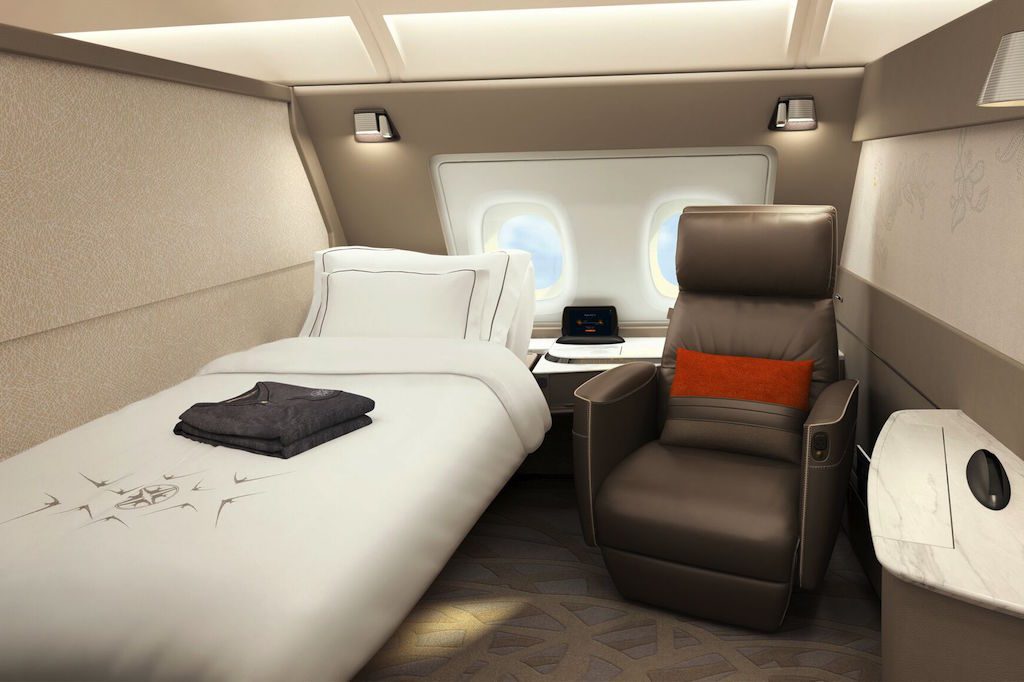Singapore Airlines unveiled its new suite last week — it looks more like a miniature hotel room than an airplane cabin — and I flew thousands of miles to be there when the curtain dropped.
It's a nifty product, especially when passengers combine two suites, allowing them to create a double bed. Even the single suite is impressive, as it includes a giant leather seat, and a bed, along with a big television and space for working. Singapore executives say the suite is 60 percent larger than
the 2007-era one it replaces, and when it launches next month it will probably be the world's best, even more opulent than
Etihad's "Apartment."But while I was there, I wondered about the new suite's purpose. Yes, it's a niche product, only available on the 19 Airbus A380s the airline plans to keep longer-term. And yes, Singapore is shrinking the cabin's size considerably, from today's 12 seats to six. Few airlines can sell a dozen first class seats on any route anymore, no matter how impressive the product.
It's possible, though, that six is too many for most routes, even if Singapore is one of the world's strongest premium markets.
London might be an exception, given the lengthy flight time from Singapore, and the two cities are major financial centers. New York could be strong, too, but remember this plane doesn't have the range to make it, and instead must stop in Frankfurt. Soon,
Singapore expects to fly nonstop to New York using an A350, so presumably even the wealthiest travelers will prefer saving time over luxury.
Singapore also flies its A380s to other cities where premium cabins usually perform well. But there's a big difference between selling lots of business class seats, and filling suites with paying customers. Do travelers to places like Sydney, Auckland, Melbourne, Paris and Tokyo need so much space? Will they pay a premium for it? Perhaps certain one-stop routes, where there is no nonstop competition, such as Sydney-Singapore-London, will perform well. But what about everything else?
I'm curious whether this product is less about selling seats than marketing. Singapore wants to be known as a premium airline, and having over-the-top suites presumably helps it cultivate that image, even if the suites don't make sense for every A380 route.
Perhaps the airline is calculating a passenger will chose its premium economy cabin over a competitor because the traveler saw photographs of the suite on a website. We've heard from several airline executives, including one from Singapore, that the "halo effect" can be strong when an airline introduces a luxury product that few will fly.
What do you think? Are Singapore's new suites a rational commercial response to demand for a premium product? Or is this more of a marketing ploy?
Send me an email at bss@skift.com or
tweet your thoughts.



